
Whether you use them as a way to pamper and relax, or they’re an integral part of your skincare regimen, face masks offer a variety of benefits to your skin. Growing in popularity in recent years, there are now many face masks available, and choosing the right one for your skin can be a bit of a challenge. Find the right type of mask for your skin with this guide to face masks!
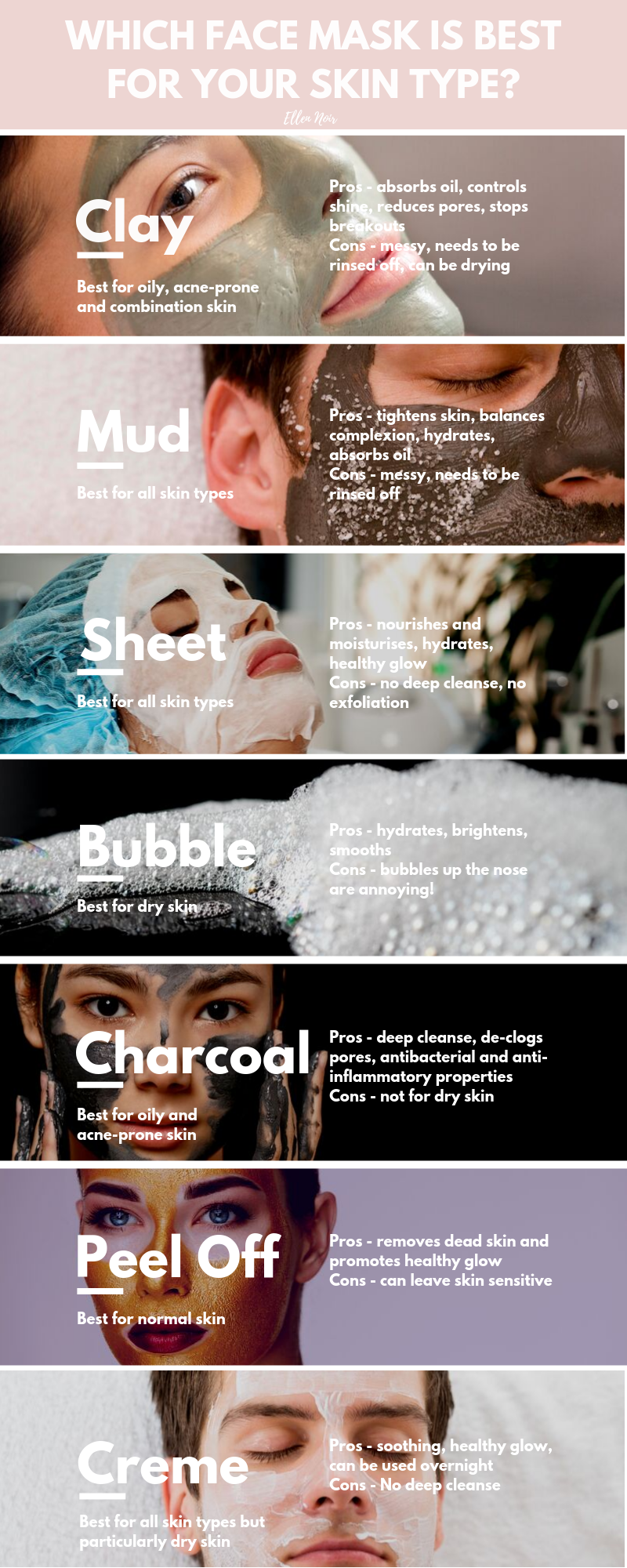
Types of Face Mask
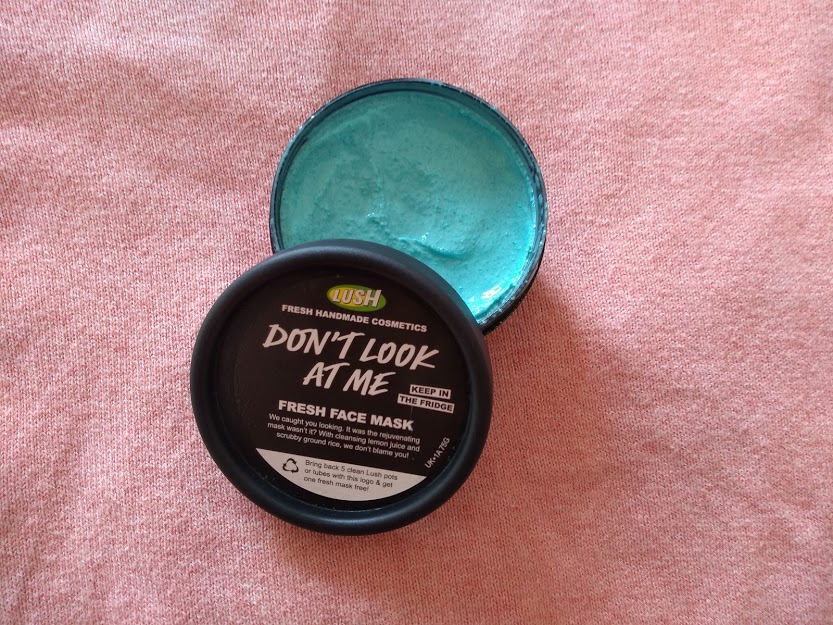
Clay Masks
Clay masks are ideal for people with oily or acne-prone skin, as the clay in the mask helps to draw out impurities and absorb oil. They can also help to brighten the skin without making it look shiny. Because clay has more of an absorbing effect, it dries out spots and reduces pores, helping to reduce the risk of breakouts, and making your skin look a lot smoother. Commonly used clays include bentonite and kaolin; bentonite absorbs more oil and kaolin is better for acne-prone and drier skin.
Mud Masks
Mud masks tend to be nourishing and exfoliating. Like clay masks, mud masks draw oil from the pores, yet their higher water content also offers hydrating benefits. Mud masks also help to tighten the skin and balance out complexion.
Sheet Masks
Sheet masks are face-shaped masks that are pre-soaked in a concentrated serum. The sheet mask is simply placed on the face and left for ten minutes or so, to allow the serum to sink into the skin. There are a wide range of different sheet masks out there for different purposes, but generally speaking they will be full of vitamins and other ingredients beneficial to your skin. Sheet masks typically won’t help with exfoliating or drawing out impurities in your skin, but they can help to hydrate and nourish your skin, give you a great glow and are perfect for a pamper night. Once you remove the mask, simply rub the leftover serum into your skin rather than rinsing off.
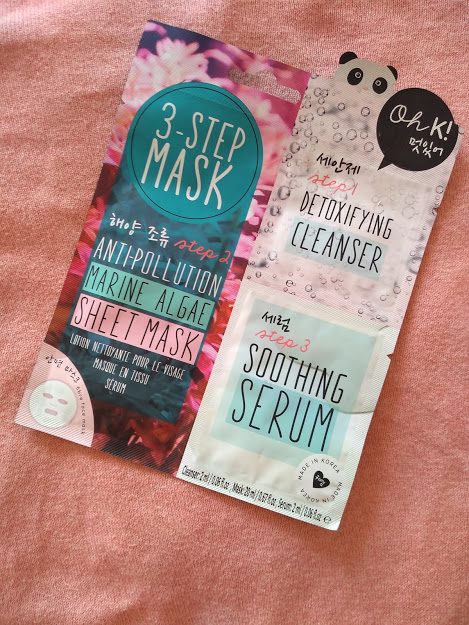
Bubble Masks
As the name may suggest, bubble masks bubble up when applied to the skin, foaming up into quite a fun mask. Bubble masks are available in tubes or as a sheet mask, but should be applied away from the mouth and nose as no one wants bubbles getting in the way of breathing! The bubbles aren’t just for fun though, as they help to invigorate and energise the skin, as well as evening out skin tone and smoothing pores. Bubble masks are great for drier skin, and at colder times of the year, as it helps to hydrate and brighten the skin.
Charcoal Masks
While charcoal has been the subject of a few fad beauty movements, it is actually quite a magical ingredient. Charcoal is incredible at drawing out impurities, dirt and oil, and its antibacterial and anti-inflammatory properties makes it ideal for acne-prone skin. Therefore, charcoal masks are the best for deep cleansing and de-clogging pores. If you have dry skin then it is best to steer clear of a charcoal mask, as it will take away the oil you need to keep your skin hydrated. Follow using a charcoal mask with a light moisturiser that doesn’t clog the pores.
Peel-off Masks
Peel-off masks work by stripping the outer layer of the skin as the mask is peeled off, removing any dead skin and dirt. This helps to create smooth and glowing skin, although less is usually gained beneath the surface. After using a peel-off mask, be sure to use SPF – either as a sunscreen or in a moisturiser or foundation – as it can leave your skin sensitive.
Creme Masks
Creme masks are typically cool to the touch, and can easily be refrigerated for an even colder mask. Having a cold creme mask is really beneficial for inflamed skin, as the cooling effects can help to calm the skin. Another key benefit for creme masks is their ability to hydrate the skin and add a healthy glow. Some creme masks will come in overnight form, allowing you to wear the mask as you sleep, in place of a moisturiser. When you awaken, your skin will be glowing and ready for the day!
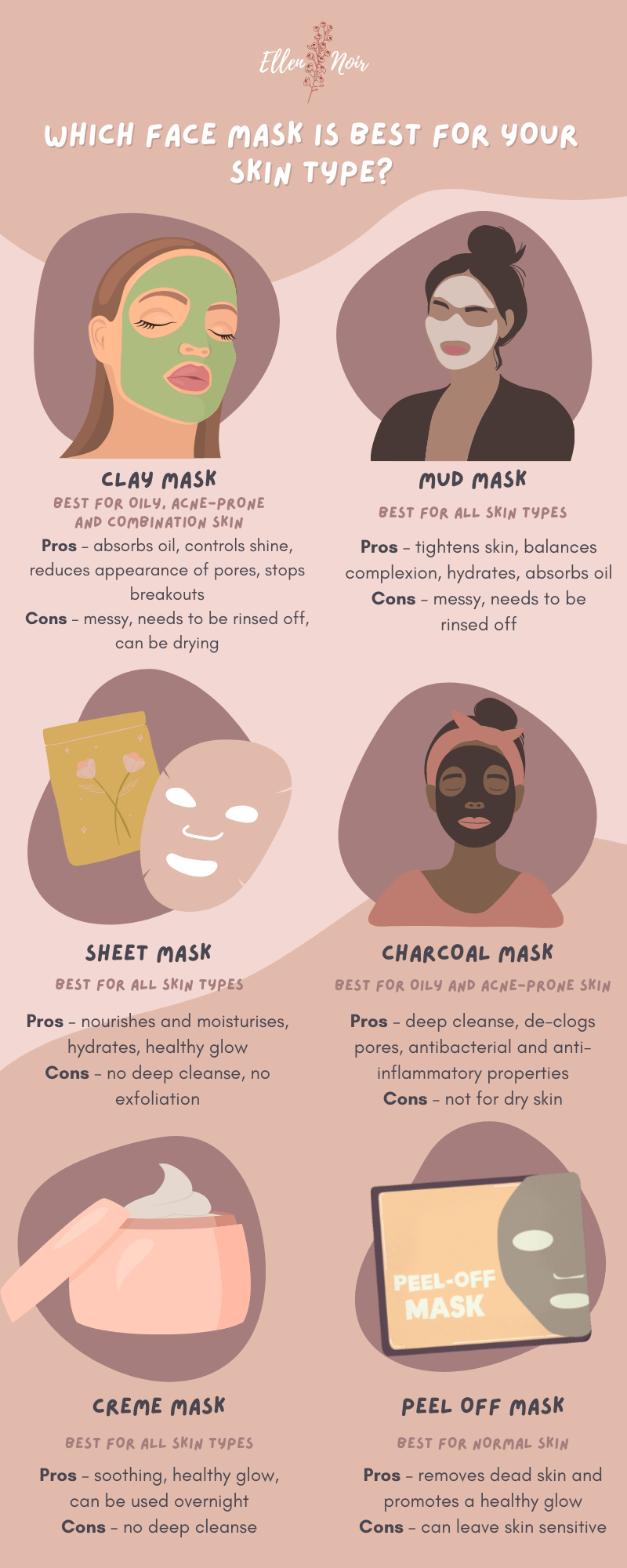
What Face Mask is Best for Your Skin Type?
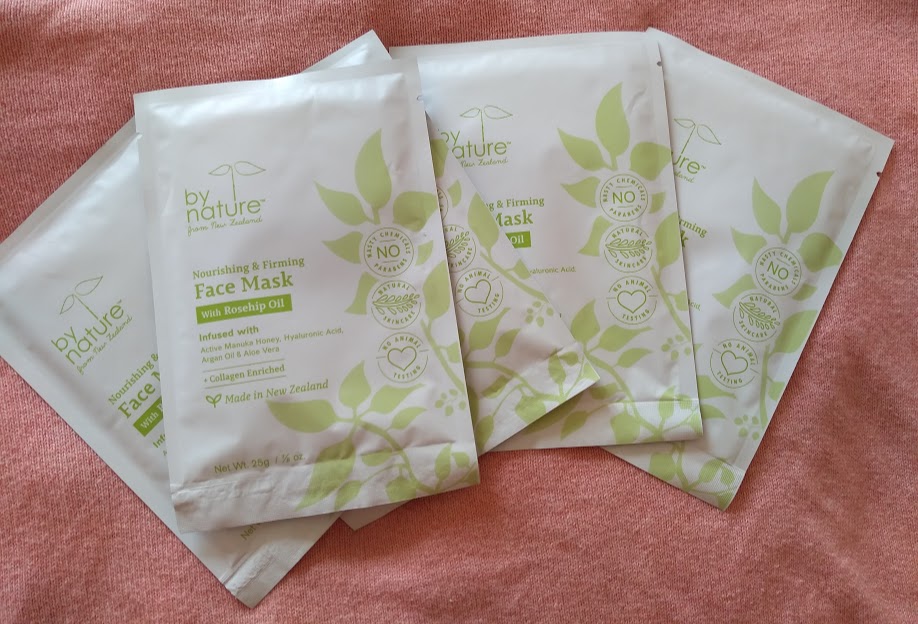
Face Masks for Dry Skin
Search for a face mask that contains ingredients like aloe vera and hyaluronic acid, as these offer a lot of hydration for the skin. Dry and dehydrated skin can really benefit from a sheet mask, as it helps to lock in moisture and boost your skin’s glow. This is because you do not wash off a sheet mask’s residual serum, but rub it into the skin, whereas a clay or mud mask will be washed off. Really dry and flaky skin will benefit from leaving a creme mask on overnight to help soothe and soften the skin.
Face Masks for Acne-Prone and Oily Skin
Charcoal and clay-based masks are best for acne-prone skin, as they help to draw out impurities and can offer antibacterial benefits. Bubble face masks can also help to clear pores, if you are looking for something a little more hydrating for your skin. If you want to use a sheet mask, then look for ones that use salicylic acid, or an antibacterial ingredient like tea tree oil, as this will offer great benefits to your skin. Face masks that are good for acne-prone skin tend to be quite drying, so should only be used once a week.
Face Masks for Dull Skin
If your skin is dull looking, then you will want a face mask that removes dead skin and adds a healthy glow. Peel-off masks are great for removing dead skin cells and dirt to boost the complexion. If your skin is too sensitive for a peel mask, use a sheet mask that is designed to brighten the skin.
Face Masks for Ageing Skin
If you are trying to reduce the appearance of wrinkles, then you’ll want to get your hands on a hydrating face mask. A hydrating mask helps to plump the skin, so that it appears younger. Hydrating masks will contain hyaluronic acid or glycerin to help boost the water content in the skin, which gives it a plumper and more youthful appearance.
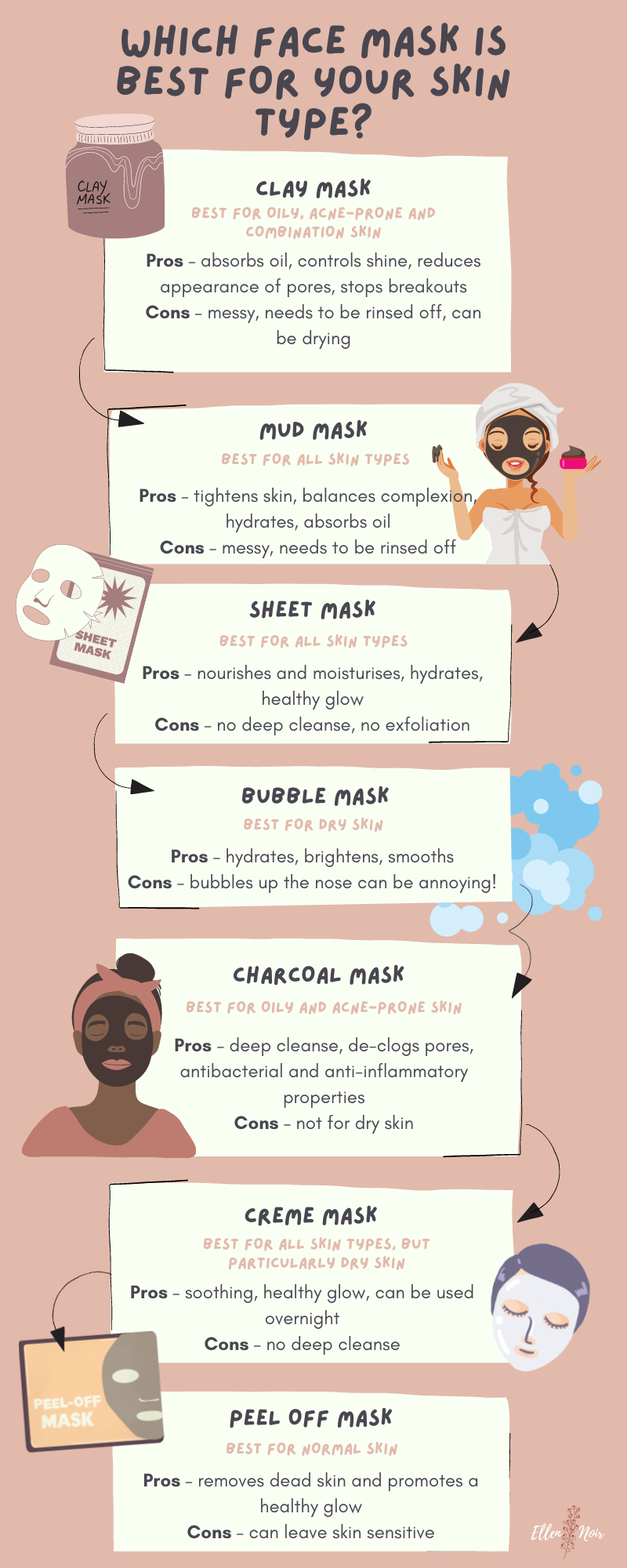
Which face masks do you like best? Let me know your recommendations by leaving a comment below.

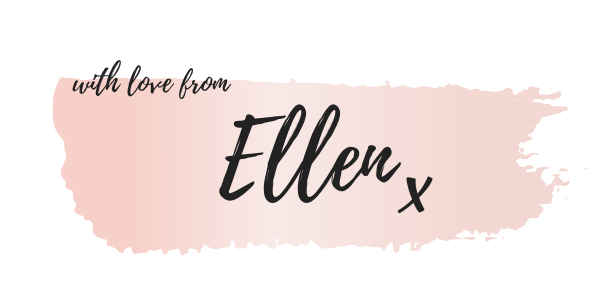
I really like the sheet face masks, but i’m trying to find those that are biodegradable. Are any of the ones you talk about in your post environment friendly, would you know?
Great selection of face masks, by the way, really enjoyed reading your post 🙂